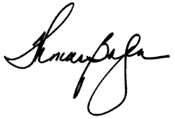2003 Distinguished Graduate Award
Harold G. Moore, Jr. '45
A distinguished soldier characterized by a former Chief of Staff of the Army as "the bravest battalion commander I observed in three and a half years of combat in Korea and Vietnam; "the author of a best-selling book on warfare in Vietnam; an outstanding lecturer and teacher on leadership and preparation for combat: these achievements illustrate Harold G. Moore's dedication to the principles expressed in the West Point motto: Duty, Honor, Country throughout a brilliant military career spanning thirty-six years.
Hal Moore decided to make West Point and the Army his life's career when he was fifteen years old. He left home in Kentucky before he finished high school, got a job in Washington, DC, finished high school, and attended George Washington University at night for two years while striving for an appointment to West Point. He finally succeeded and entered the Military Academy in 1942, graduating with the Class of 1945.
Commissioned in the Infantry, Hal Moore served with the 187th Airborne Infantry Regiment in Japan until 1948, when he returned to the United States. Stationed at Fort Bragg with the 82nd Airborne Division, he volunteered to join the Airborne Test Section, a special unit testing experimental parachutes, and he made some 150 jumps with the Section over the next two years.
Following graduation from the Infantry Advanced Course in 1952, Captain Moore was assigned to the 17th Infantry Regiment of the 7th Infantry Division in Korea. While there, he commanded both a rifle company and a heavy mortar company in combat, and was awarded three Bronze Star Medals, two for valor. Later he served as Regimental S-3 and Assistant Division G-3. Major Moore then returned to West Point in 1954 for a three-year tour as an instructor in Infantry tactics. One of his students, General (then cadet) Norman Schwarzkopf calls Major Moore one of his "heroes," and cites Moore as the reason he chose the infantry branch upon graduation.
Attendance at the Command and General Staff College was followed by a three-year tour in the Office, Chief of Research and Development where Hal Moore's initiative and insights were key to the development of new airborne equipment and airborne/air assault tactics. Graduation from the Armed Forces Staff College in 1960 was followed by a three-year tour with Headquarters, Allied Forces Northern Europe in Oslo, Norway. In 1964, Lieutenant Colonel Moore completed the course of study at the National War College, while earning a master's degree in International Affairs from George Washington University.
Assigned to Fort Benning, Hal Moore commanded a battalion in the 11th Air Assault Division, undergoing air assault and air mobility training and tests until July 1965, when the Division was redesignated the 1st Cavalry Division (Air Mobile). Lieutenant Colonel Moore then took his battalion, the 1st battalion, 7th U.S. Cavalry to Vietnam and combat.
On November 14, 1965, Hal Moore's under strength battalion of 450 men was inserted into an isolated clearing in the la Drang Valley with the mission of seizing, by air assault, a landing zone and engaging and destroying an enemy force estimated by intelligence to be of battalion strength. The desperate three-day fight that ensued turned out to be the first engagement of the United States Army against North Vietnam regulars. And the enemy strength was not a battalion, but three regiments of over 2,000 men. Hal was the first man of his battalion to set foot on the ground of the landing zone, and for the next three days he personally directed every phase of the battle, employing all available support fires from artillery, helicopter gun ships, and close air support from fighter-bombers to offset the enemy's vast superiority in manpower. Through the intensive training he gave his battalion before it went to Vietnam, his indomitable will to win, and his tactical brilliance on the battlefield, Lieutenant Colonel Moore ensured the survival of his men and a crushing defeat to the NVA force. For his extraordinary heroism and inspired leadership at la Drang, Hal Moore was awarded the Distinguished Service Cross.
General Moore's last assignments in an extraordinary military career were served in Korea as G-3 8th Army and Commanding General, 7th Infantry Division; Commanding General of the Army Training Command at Fort Ord; Commanding General of the Military Personnel Center, and finally, Deputy Chief of Staff for Personnel, Department of the Army. It was during his last tour that West Point experienced a wave of violations of the Cadet Honor Code. Through Hal Moore's intervention in resolving this extremely difficult situation, the Honor Code was strengthened and remains strong today.
In 1981, General Moore and Joseph L. Galloway began researching and writing the book that described the three-day action in the la Drang valley. Eleven years of interviewing survivors, traveling to Vietnam and the battlefield, and meeting with former enemy commanders resulted in the book, We Were Soldiers Once, and Young, a seminal work that was 19 weeks on the New York Times Best Seller list and was later made into a riveting motion picture.
Since the publication of his book, General Moore has dedicated his life to lecturing and teaching the lessons learned from that 1965 battle. His several lectures to cadets at West Point were inspirational, imparting to his audience, the crucial requirements for leading in combat. Awarded the prestigious Doughboy Award for his lifelong contribution to the Infantry; his book selected by the Commandant of the Marine Corps as required reading; named by a distinguished military historian as the leader best qualified to speak on Vietnam: Hal Moore's legacy is best summed up in the words of a former Chief of Staff of the Army: "...his greatest contribution has been his willingness to give of his life to teaching young officers and soldiers."
Accordingly, the Association of Graduates takes great pride in presenting the 2003 Distinguished Graduate Award to Harold Gregory Moore, Jr., USMA Class of 1945.

THOMAS B. DYER
Chairman and CEO